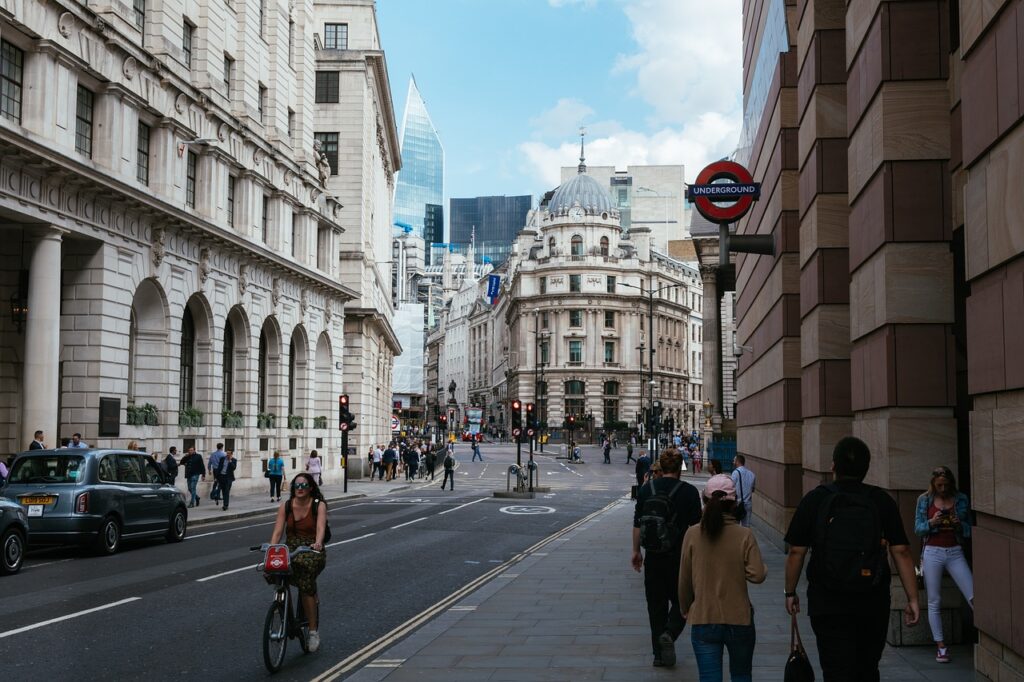The Bank of England has increased the base interest rate for the 11th time in less than 18 months, with officials explaining they are trying to control inflation. But if you look at the key factors behind the increase in prices across the UK, and many other countries, it is not because consumers have too much money increasing demand. It is because of global factors, such as high energy prices, which feed through into higher costs for most commodities. So we are witnessing a great banking rip-off as inflation is not demand-driven and inflation will naturally fall as energy prices come down later this year.
What is supply-side inflation?
A variety of factors can cause inflation, including supply issues. When there is a shortage of supply for a particular product or commodity, its price tends to rise. This is because the demand for the product remains the same, but there is less of it available for purchase.
When there is supply-side inflation, a temporary imbalance between supply and demand, rather than a sustained increase in demand, causes an increase in prices. This means that increasing interest rates to slow down demand is not effective in addressing the root cause of inflation.
Money printing during the pandemic is a factor in high inflation
Printing money, or increasing the money supply during lockdowns, was a key factor in increasing inflation. Lockdowns led to a disruption in the global supply chain and the availability of goods and services. An increase in the money supply at a time of falling supply led to an increase in prices.
Mervyn King, the former Governor of the Bank and England, explained in a BBC interview that printing money was a mistake by all central banks that led to inflation. The policy response has been to increase interest rates while incomes are being squeezed by increasing prices caused by supply issues, further reducing the money for households and weakening the economy.
US Federal Reserve driving interest rate decisions in the UK
There is a strong link between decisions made by central banks across the world because higher interest rates in one country increase the demand for their currency. If the US Federal Reserve increases interest rates and the Bank of England does not follow, this will reduce the value of the pound in relation to the dollar. This then makes imports of goods priced in dollars, such as oil and energy, more expensive, leading to higher prices for consumers.
Households in the USA are less affected by short-term changes in central bank interest rates, as it is common for 30-year term mortgages. But interest rate policy in the USA is directly affecting consumers in the UK as the Bank of England follows every interest rate move of the US Federal Reserve.
I should point out that the vast majority of people in the UK are on fixed-rate mortgages, so when the base rate changes, there is not an immediate change in mortgage payments. But as the base rate increases, this usually leads to an increase in the best fixed-rate mortgages on the market.
Conclusion
When inflation is high, central banks often raise interest rates to slow down economic growth and keep inflation in check. This is because higher interest rates make borrowing more expensive, which reduces consumer and business spending, leading to lower demand for goods and services, which can help to reduce inflation.
But we are witnessing a great banking rip-off as inflation is not demand-driven but supply-driven through energy costs. With energy used to provide many other goods and services, high energy prices lead to increasing the cost of production, which fuels more inflation. Economies across the world are struggling to grow and increasing interest rates and lowering the amount of money available to households only make things worse.
When consumers are facing a huge squeeze on disposable incomes and a fall in their standard of living, increasing interest rates and taking more money from working people is not the way to go. We are witnessing a great banking rip-off as inflation is not demand-driven and inflation will naturally fall as energy prices come down later this year.
Follow me over on Twitter, Gettr, Instagram, or Facebook for my daily updates. Or read my recent blog explaining the winter Covid wave in the UK fell naturally without any new interventions.

